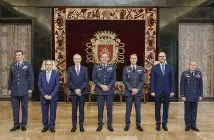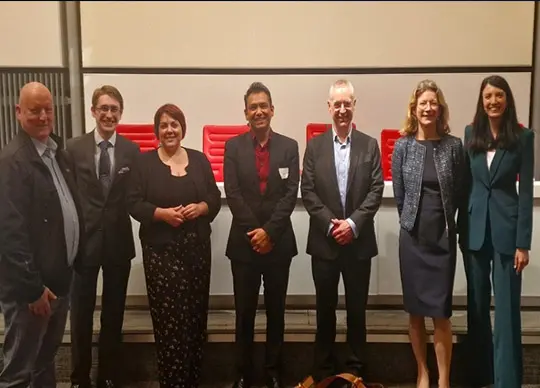
Nearly two years after its formation, the UK-Australia Space Bridge is gathering momentum. The space bridge has proved something of a slow burn, designed to deliver tangible benefits over the long run. But a recent MySecurity Media event in the UK demonstrated that the concept is getting considerable traction and support within the space industry in both countries.
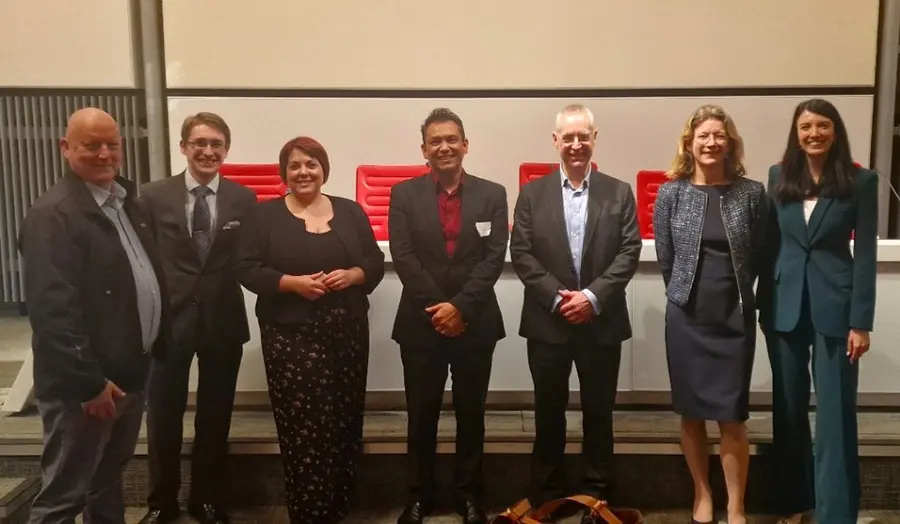
The collaboration between the Australian Space Agency (ASA), UK Space Agency, Austrade, and the UK Department for International Trade is not only designed to grow space-related trade and investment but also serves as a mechanism to exchange knowledge and ideas.
So with that in mind, on a mid-October morning in London, MySecurity Media teamed up with the Government of Western Australia to leverage off the space bridge and host an event that discussed the challenges the space sectors in both countries had accessing talent, markets, and capital.
Moderated by John Langoulant, Western Australia’s Agent-General, seven panellists and two speakers were able to broadly agree on what the key challenges were, but the proposed solutions reflected the diversity of the space sector and the varying priorities.
Importantly, the industry has a big supporter in Langoulant. Perth’s man in London wasn’t at the event out of duty. He has a longstanding professional interest in the space sector that aligns well with the burgeoning space scene in Australia’s west. The AG is also fully aware of the challenges, particularly the skills challenges, the industry faces.
“Space is evolving, changing, growing, and becoming more sophisticated,” Langoulant told the audience. “It is important that the question of skills development is pursued and discussed. When you look around the world, the race for skills across every sector of our economies is on.”
“In the UK, there are about 1,300 space companies,” said Joseph Dudley, founder and director of the Space Skills Alliance. “Of those, about three-quarters are looking to recruit in the next three years, and of those, about 70% are struggling to recruit. This is a massive barrier to growth in our sector.”
Chris Hewett, the General Manager of Space Strategy at the ASA, said that the Australian space sector is also struggling with a workforce shortfall, although he notes it isn’t only a problem confined to the space industry.
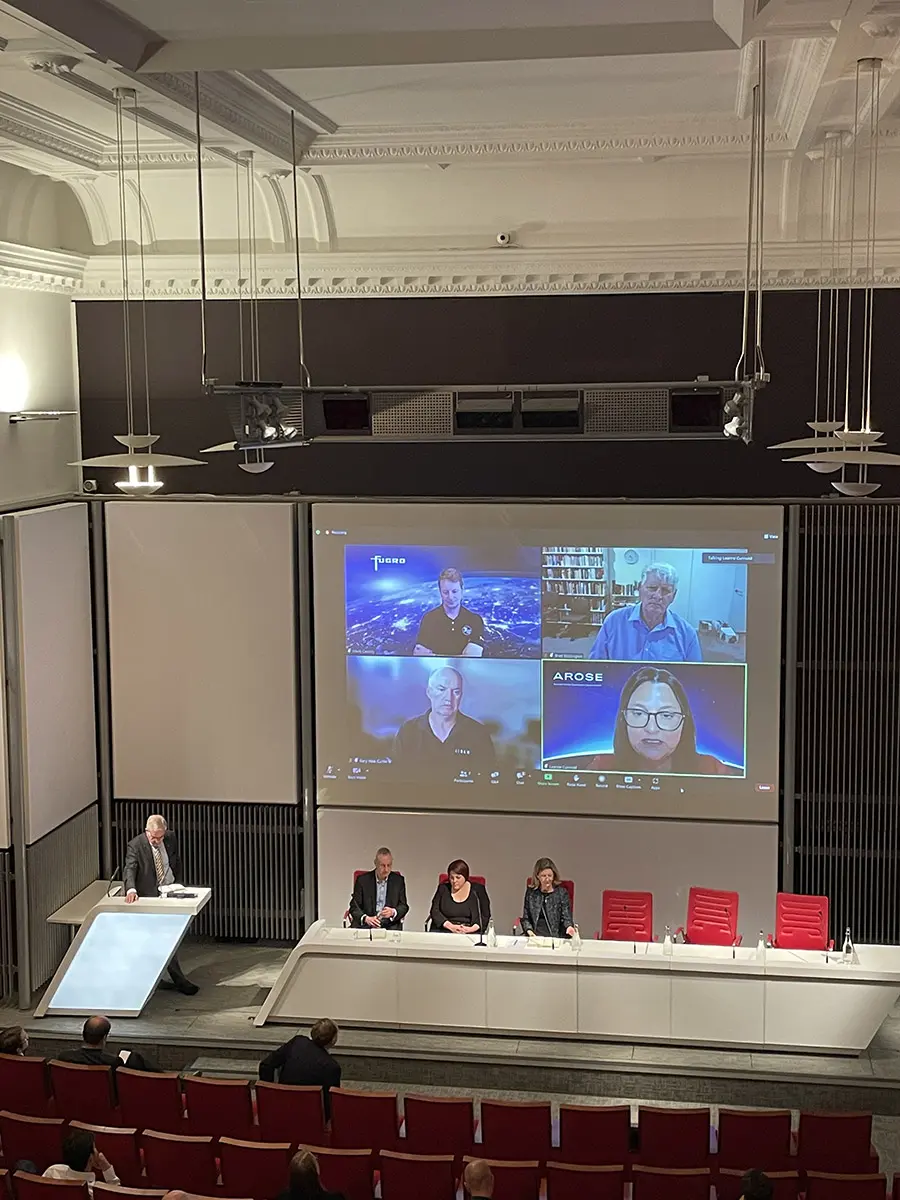
“This squeeze on the workforce will be with us for perhaps, a generation or more,” he said. “The story for the Australian space industry is a microcosm of that global picture.” Recently, the ASA helped develop a space skills taxonomy that identified 319 space-related skills. Further research found there were varying degrees of shortages in 310 of those skills.
“Delving deeper into the research, 86 of those 319 skills were classified as high intensity, meaning that current and future demand will significantly outstrip the existing Australian skills supply and formal training capacity,” said Hewett.
While the skills shortage and how to solve it was a top-tier issue at the space bridge event, the realities of operating in a for-profit sector also went under the microscope. Just like acquiring new talent, acquiring new markets and fresh investment is also an ongoing challenge for most companies in the industry.
Langoulant said the data presented by Dudley and Hewett looked daunting but suggested the problem wasn’t unsurmountable. “In my experience, as long as you identify the issue and start working at it, you get into those numbers pretty quickly,” he said. “I think that’s part of the challenge.”
Most of the panellists agreed there was a need to focus on early career opportunities and that meant converting school kids, parents, peers and teachers to the opportunities in the space sector. Both AROSE’s Leanne Cunnold and Brett Biddington of Biddington Research agreed educating parents was critical.
“Parents are a big issue because they only understand traditional paths (to careers),” said Cunnold. “I think there is a lot of education that needs to happen.”
Joanna Hart, a director at the STFC Skills Factory is a long-time advocate for breaking down the entry barriers to the space sector, arguing a space sector preoccupation with university qualifications and prior experience is a big deterrent to young job seekers.
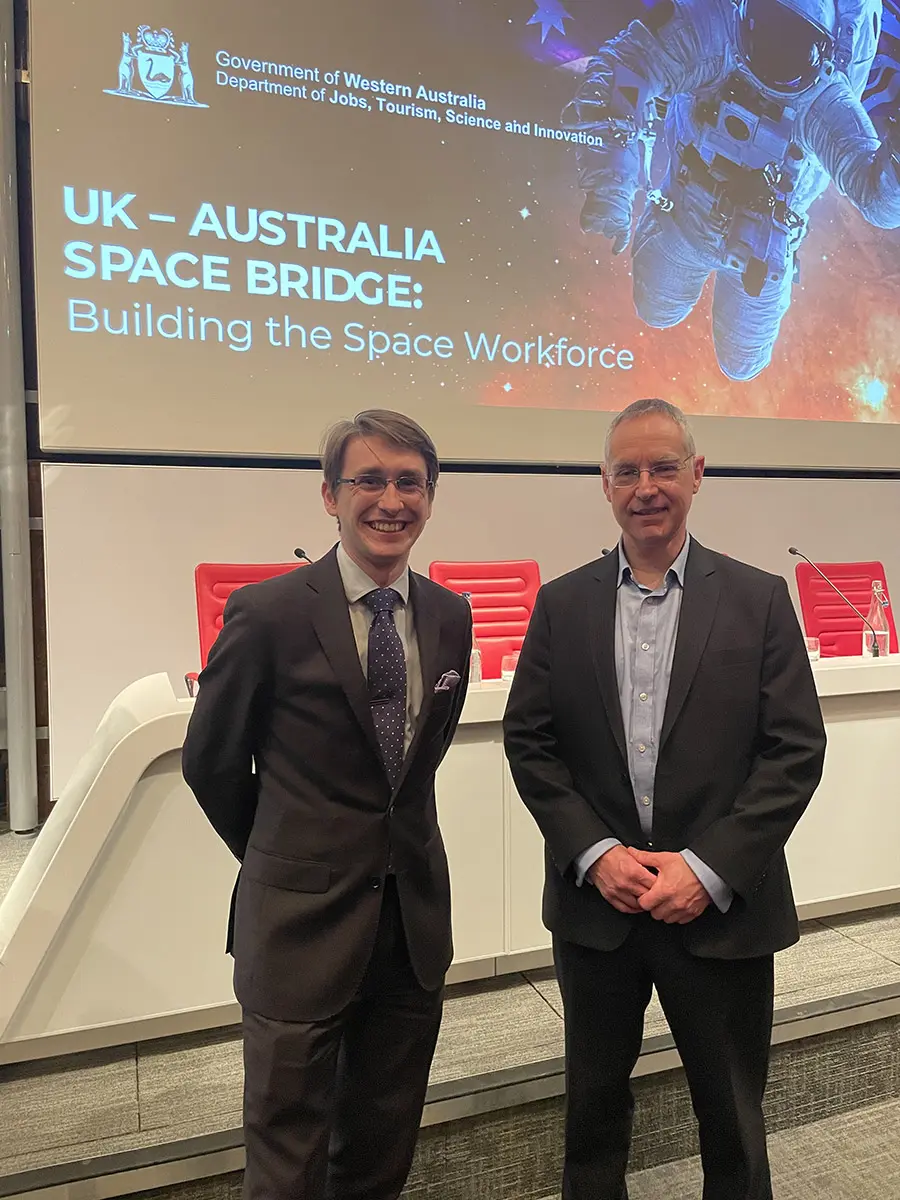
“When you look at the job adverts, they are all looking for people with five years’ experience. If we don’t do something about this now and increase the early career opportunities, we are going to be in exact the same position in five years’ time,” she said.
Even for experienced candidates, the panellists pointed out that many of the skills gained in other sectors are readily transferrable to the space industry, the perception that the sector was a boy’s club and only open to the smartest people in the room remained a big barrier to attracting labour.
“We use unconsciously elitist phrases like ‘it’s not rocket science,’ which actually excludes lots and lots of people because they hear that and think “I’m not smart enough to work in space,” said Biddington, who provided the event’s audience with a refreshing takedown of the space industry’s vanities and delusions. “Most people who work in space sit in the middle of the bell curve, and they are discouraged by the way that we treat space and space treats itself.”
Gary Hale, Chief Information Security Officer at Perth’s Curtin University, agrees there’s a big misconception that everything about space was high tech. Working in the university sector, he deals with entry-level candidates every day and says combining the young disruptors with experienced old heads in workplaces made for some ultra-creative workspaces.
The panel discussion also raised some interesting points about market access. There is a broad consensus that the space sector and the data it gathers plays an ever-growing role in the everyday lives of individuals and entities.
Mark Cassidy, systems engineer at Fugro said a lack of knowledge about the data available from the space sector, how to access it, and perception of elitism around the industry were some of the biggest barriers to growing customer markets. To him, solving this problem is relatively
straightforward, and it comes down to educating potential markets.
“There’s some education to be done with potential users of (space data) information,” said Cassidy. “There’s a company here in Perth who is in the observation game, and they are trying to sell Earth observation data. There is a big agricultural industry out there completely unaware that this data is available or how they can use it to help everyday problems that they have.”
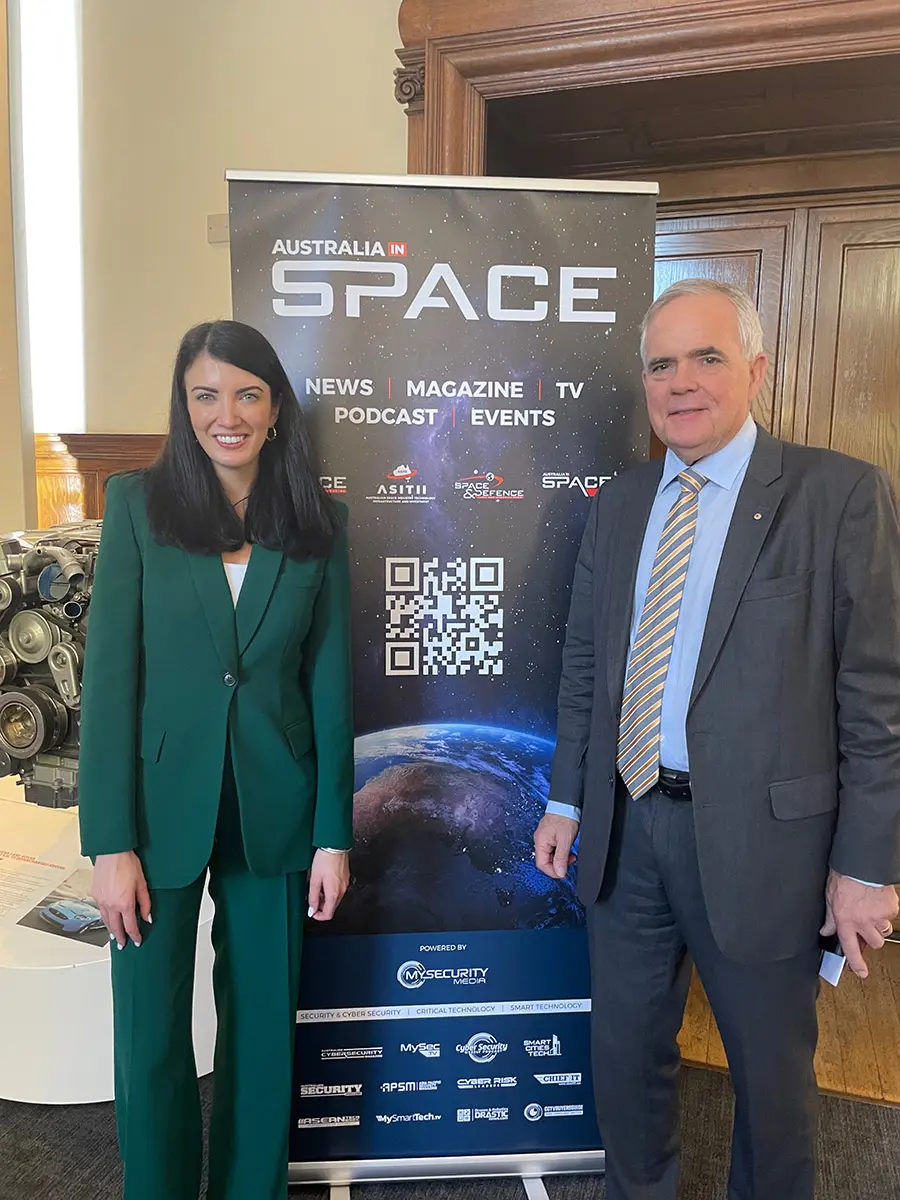
“I think the key thing that’s going to make the space bridge come alive is having real programs for markets, customers, and investors,” said Martin Soltau, Chairman of the UK Space Energy Initiative. “Government has an important role, but ultimately the space sector has to have a commercial market.”
While panellists such as Hart argued that the need to address the talent issues outweighed other challenges, other panellists took a more holistic view during the discussion.
“I agree that skills are incredibly important,” said Louise Butts, Business Development Manager at the UK’s South Coast Centre of Excellence in Satellite Applications. “But for a business, there are some real trade-offs between how much they can finance skills and that ultimately comes down to money and investment – we can’t ignore the fact that companies have to watch out for those things as well.”
Cunnold argued companies in the space sector, especially start-ups, have to zero in on what problem their product or service is trying to solve to attract investment and be able to fund the talent required to take that product to the market. She suggests that like increasing markets, the space sector has some “education work” to do with the investors.
Biddington was critical of the ad hoc approach to space investment in Australia and the lack of government support. “There have been some big investments, but this is not yet coherent, or at large scale, or consistent,” he said. “The intel I have from people I talk to about the Australian space sector is that investor markets, venture capitalists, angels, and institutional investors, are not convinced that the Australian Government is fair dinkum about space, and so their hands are still in their pockets.”
Throughout the space bridge event, the panellists and speakers brought a diversity of views and possible solutions to the challenges facing the space sector. Some, like Hart, firmly believed that skills and employment issues are the most pressing problems. Both Dudley and Hewett mapped out multi-point solutions to the industry talent shortfalls. But panellists like Cunnold and Butt were of the view any skills shortage resolution programs will need to slot in beside the commercial realities of operating a business.
What were the takeout’s? Yes, the skills shortage is a problem in the space industry. Still, it can be addressed in the medium term by untangling some of the obvious barriers to entry and puncturing the industry’s only for super smart types aura.
Audiences, be they school kids – the potential employees of the future, customers, investors, teachers, and individual members of the public, need to be educated about what the space industry offers both from a consumer and employment perspective. But if panellists like Hale and Biddington argue the space industry isn’t rocket science, neither is a decent marketing campaign.
The MySecurity Media’s Australia in Space /Government of Western Australia space bridge event in London didn’t pretend to have all the answers to the space sector’s problems, but it got people talking and throwing around ideas – making it a step in the right direction.




